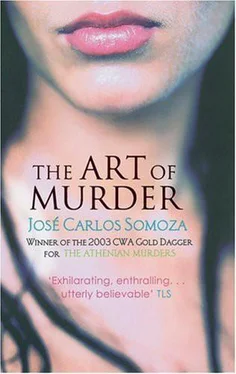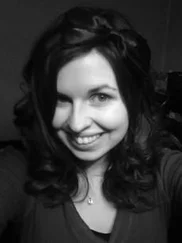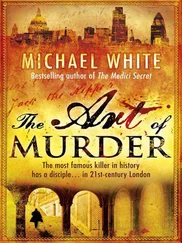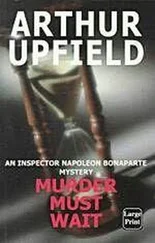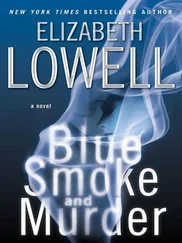Jose Somoza - Art of Murder
Здесь есть возможность читать онлайн «Jose Somoza - Art of Murder» весь текст электронной книги совершенно бесплатно (целиком полную версию без сокращений). В некоторых случаях можно слушать аудио, скачать через торрент в формате fb2 и присутствует краткое содержание. Жанр: Триллер, на английском языке. Описание произведения, (предисловие) а так же отзывы посетителей доступны на портале библиотеки ЛибКат.
- Название:Art of Murder
- Автор:
- Жанр:
- Год:неизвестен
- ISBN:нет данных
- Рейтинг книги:4 / 5. Голосов: 1
-
Избранное:Добавить в избранное
- Отзывы:
-
Ваша оценка:
- 80
- 1
- 2
- 3
- 4
- 5
Art of Murder: краткое содержание, описание и аннотация
Предлагаем к чтению аннотацию, описание, краткое содержание или предисловие (зависит от того, что написал сам автор книги «Art of Murder»). Если вы не нашли необходимую информацию о книге — напишите в комментариях, мы постараемся отыскать её.
Art of Murder — читать онлайн бесплатно полную книгу (весь текст) целиком
Ниже представлен текст книги, разбитый по страницам. Система сохранения места последней прочитанной страницы, позволяет с удобством читать онлайн бесплатно книгу «Art of Murder», без необходимости каждый раз заново искать на чём Вы остановились. Поставьте закладку, и сможете в любой момент перейти на страницу, на которой закончили чтение.
Интервал:
Закладка:
The bedroom was on the right. It was a big room, with a mattress on the floor and no other furniture. The mattress was a bright blue. A door led to the bathroom, already equipped for hyperdramatic needs. A couple of bathrobes were hanging on the back of the door.
The man had gone into all the rooms. Rather than showing her the house, he seemed to be inspecting it. Clara was looking at all the things in the bathroom when she saw a shadow over her shoulder. It was him. Without a word, he bent down and started to lift off the plastic tunic. She understood what he was trying to do, and raised her arms to help. The man finished removing the tunic, folded it up, and put it into a big bag. Then he bent down again and look off her slippers, which he stored in the same bag. Then he left the room, bag under his arm. She heard his footsteps across the floorboards, the door, the lock. She breathed in deeply as she heard the sound of the van engine fade into the distance. She left the bedroom and went to the front window just in time to see the pen of light drawing parallel lines across the darkness. Then everything was black again.
She was alone. She was naked. But she didn't feel at all bothered by this.
She went up to the front door and examined it. Locked. She tried the window and found it was locked too. She tried all the windows in the house as well as a back door she discovered in the living room, and found that none of them would open without keys. She preferred to think of it another way: she was not locked in, she was in storage. She was not alone, she was unique. Unique and stored in a locked house. She was a precious object.
She went into the living room and looked for the phone. It was cordless. She picked it up. A dead silence. She saw a dark blue rectangle next to the receiver, a card with a number on it. She guessed it must be Conservation's details ('You can ring at any time of the day or night') but it would be useless if the phone was not working anyway. She followed the cable back and saw it was properly connected. She tried again, tapping in numbers haphazardly. The phone was dead. She dialled the number on the card. As her finger touched the last digit, she heard the call go through. So it worked in certain cases. She hung up. She immediately knew what was going on. You can ring us, but only us. Of course.
She gazed around at the silence, the emptiness of the lined floor. The house was anonymous and naked, just like her. She ran her hands over the incredible smoothness of her primed thighs, the harsh rigidity of the labels attached to her body, and looked all around her. She needed to start from scratch, and that was where she was, at the start of everything, polished, smooth, reduced to a minimum, labelled.
Having nothing better to do, she approached one of the mirrors.
It was then that she discovered her body was nothing more than a sheaf of lines.
Her father's scrawny, angular features bent over her, distorted by their proximity: the majestic nose, the big square glasses in which she could see the reflection of an oblong copy of herself. He spoke to her in a voice that seemed to come from a long-lost recording:
'What a sad life, a sad life; the fact is, I've no idea why I was born. How I wish I had an objective, a goal in life like you do, that would help me understand why I was born, but above all why I vanished, daughter, it's so sad, why I had to leave when you were so young, when I did not know you properly. I'd like to know why I abandoned you so soon, why I can't live with you any more. Maybe all that, the bitter separation, is due to the fact that you have to be ready, because the cameras are waiting for you, the stage is set, the dialogue is written, and the lights… look how brilliant the lights are… all for you, my beautiful daughter. And the faces watching you, staring at you: the director, the producer, the make-up artist… Come on, on to the set. I'm looking at you, watching over you, I'm not going to close my eyes. I have to look at you forever, daughter…'
Her father poked out his tongue and anxiously licked his top lip. The tongue was a tiny line darting in and out…
When Clara woke up she was on the verge of tears, or perhaps had already been crying: it is hard to tell if there are no actual tears to give the game away. She remembered her dream vividly, although she had no idea what it meant. She often dreamt of her father: he was a figure who was always part of her consciousness, someone who visited her with astonishing regularity. Uncle Pablo had once confessed he also dreamt of him. He put it down to the fact that his brother had died. 'Dead people always appear when we dream,' he used to tell her, adding that our only possibility of eternal life was to figure in other people's dreams.
She was lying on the bedroom mattress in the bleary light of dawn. As she stood up, she was struck by the white plaster on the wall in front of her, and the lines on the floorboards. She was still naked apart from her labels, but neither the fact that she had no clothes, sheets or blankets to cover her, nor the three labels attached to her body, had been able to disturb her blissful sleep. She sat on the edge of the mattress with her feet on the floor and wondered what she should do next. It was then she heard voices.
The sound came from the living room. There were at least two people, and they were speaking Dutch. They were laughing, shouting, from time to time. Perhaps the noise they had made coming into the house was what had woken her.
She did not think they could be people from Conservation or Security. Perhaps they were workmen who had come to install something, or cleaners (how absurd). It could also be the first hyperdramatic rehearsal, an improvised scene they were putting on for her benefit. Or perhaps it was the artist himself, the painter who had contracted her, who had come with his group of assistants to examine the material for himself. Whoever it was, she needed to prepare herself.
She went into the bathroom, urinated (her bladder was full to bursting, but she only now realised this), then washed herself carefully with wet paper towels. She rinsed her face with water, smoothed her hair (none of this was necessary: her face was already shiny clean, her hair looked perfect); for a few moments her mind wandered to thoughts of dresses, colours, accessories, ways of presenting herself to strangers, what the best combinations might be, until she suddenly remembered she was not in her own apartment, but somewhere in Holland, and that anyway she was a primed and labelled canvas and that she should appear exactly as she was to whoever had arrived at the house. She took a deep breath, walked across the bedroom, and opened the door.
Two men were walking to and fro between the front door and the living room.
The older of the two was struggling with a large canvas bag and did not see her as he went by. He had thinning hair, and wore a dirty T-shirt and jeans. He had long, hairy, almost ape-like arms. Behind thick glasses, his eyes looked like a pair of insects stuck in amber. But what caught Clara's attention was the turquoise-coloured label attached to a fold in his ‘I-shirt. Someone from Art, she thought with a shudder. He was the first member of that select circle she had ever met. She held her breath like a believer in the presence of one of the great patriarchs of her faith. So they were from the Art department of the Van Tysch Foundation, no less: assistants of the Maestro and Jacob Stein. They were not as she had imagined, with their ordinary-looking faces and rather ragged appearance, but still the sight of the label set her heart racing.
The other man seemed very young. He had just left a bag on the carpet, and was now busy raising the blinds over the back windows, flooding the room with the dawn light. He said something in Dutch and turned round. As he did so, he discovered Clara standing in the doorway. He stood looking at her. She smiled faintly, but thought that to present herself would be inappropriate. At that moment, the older man also dropped his bag on the floor, and saw her too.
Читать дальшеИнтервал:
Закладка:
Похожие книги на «Art of Murder»
Представляем Вашему вниманию похожие книги на «Art of Murder» списком для выбора. Мы отобрали схожую по названию и смыслу литературу в надежде предоставить читателям больше вариантов отыскать новые, интересные, ещё непрочитанные произведения.
Обсуждение, отзывы о книге «Art of Murder» и просто собственные мнения читателей. Оставьте ваши комментарии, напишите, что Вы думаете о произведении, его смысле или главных героях. Укажите что конкретно понравилось, а что нет, и почему Вы так считаете.
